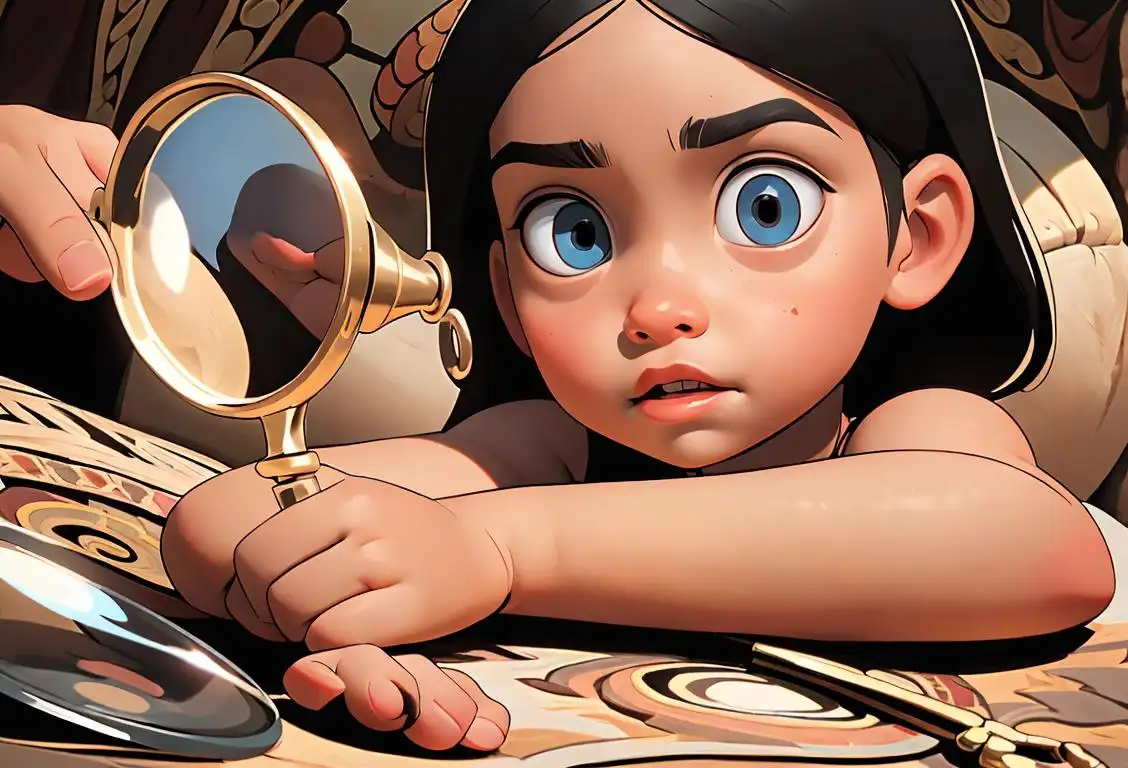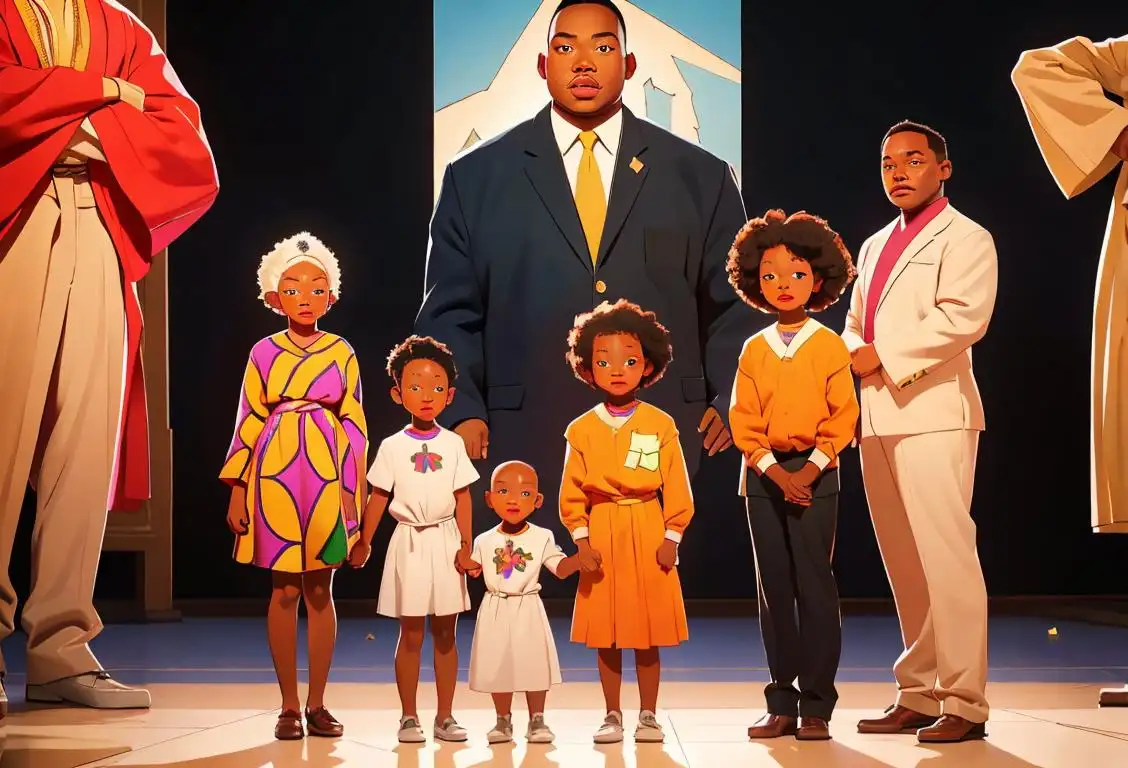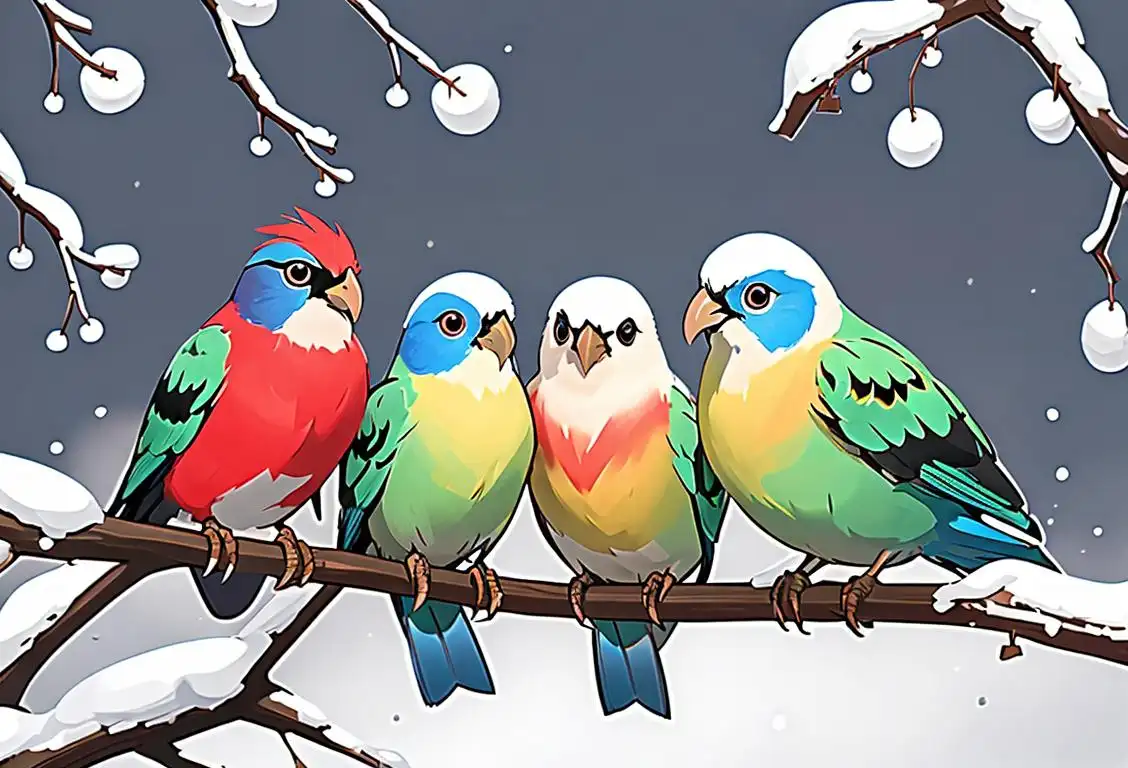National Anthropology Day

Welcome to the wild and wonderful world of National Anthropology Day! Prepare yourself for a day filled with fascinating facts, mind-boggling discoveries, and a whole lot of cultural exploration. Whether you're an armchair anthropologist or a seasoned field researcher, National Anthropology Day is your chance to celebrate the diverse realm of human beings and the amazing stories they have to tell.
When is Anthropology Day?
It's national anthropology day on the 18th February.
Unearthing the Origins of National Anthropology Day
Did you know that National Anthropology Day didn't actually originate on the internet? It's true! This special day was born from a collaboration between the American Anthropological Association (AAA) and the Smithsonian Institution. The AAA, being the awesome organization they are, wanted to raise awareness about the field of anthropology and all the incredible work anthropologists do.
Back in 2010, the AAA declared the third Thursday in February as National Anthropology Day. Why February, you ask? Well, it just so happens to coincide with the celebration of Darwin Day, honoring the birthday of the legendary scientist Charles Darwin. Since anthropology and evolutionary biology go hand in hand, it seemed like the perfect time to shine a spotlight on the study of humans and their societies.
Embracing the Internet Age
As the years went by, the internet became a magical playground for celebrating national days. People started sharing their love for anthropology on social media, organizing virtual events, and spreading the word far and wide. In fact, on February 18, 2016, the internet went bonkers with a whopping 45 mentions of National Anthropology Day!
Anthropology enthusiasts from all corners of the globe gathered online to exchange ideas, showcase their research, and appreciate the cultural diversity that makes our world so beautifully complex. From archaeology to linguistic anthropology, every subfield had its moment in the digital limelight.
Delving into the World of Anthropology
So, what exactly is anthropology? It's the scientific study of humans, past and present, analyzing everything from their physical characteristics to their social behaviors. Anthropologists seek to understand the intricate tapestry of humanity, unraveling the mysteries of our origins, cultures, and interactions.
From exploring ancient ruins and deciphering forgotten scripts to immersing themselves in unfamiliar communities and documenting endangered languages, anthropologists do it all. They're like real-life Indiana Joneses, armed not with whips and fedoras, but with curious minds and an insatiable thirst for knowledge.
If you're thinking of pursuing anthropology as a career, you've got a world of possibilities ahead of you. From becoming an archaeologist to working as a forensic anthropologist to diving into the world of cultural anthropology, the choices are endless. Just make sure you pack sunscreen and bug spray if you're planning on digging up ancient relics in the blazing sun!
History behind the term 'Anthropology'
1839
Origins of Anthropology
In 1839, the term 'anthropology' was first coined by the French scholar Paul Broca. Derived from the Greek words 'anthropos' meaning 'human' and 'logos' meaning 'study,' anthropology is a discipline that seeks to understand the origins, development, and diversity of human beings through a scientific lens.
1859
Darwin's Influence
In 1859, Charles Darwin's groundbreaking book 'On the Origin of Species' was published, which revolutionized the scientific understanding of human evolution. This work greatly influenced the field of anthropology by providing evidence for the theory of natural selection and the common ancestry of all living organisms.
1871
The Unilineal Evolution Theory
In 1871, the influential anthropologist Lewis Henry Morgan published his work 'Systems of Consanguinity and Affinity of the Human Family,' where he proposed the theory of unilineal evolution. According to this theory, all societies progress through stages of savagery, barbarism, and civilization in a linear manner. This idea shaped early anthropological thought and laid the foundation for cross-cultural comparisons.
1884
Franz Boas and Cultural Relativism
In 1884, Franz Boas, a prominent figure in anthropology, began advocating for a humanistic approach and cultural relativism. Boas argued that cultures should not be judged as superior or inferior but rather understood within their unique historical and social contexts. This shift marked a departure from the earlier evolutionary theories, emphasizing the importance of cultural diversity and individual experiences in shaping human societies.
20th Century
Expansion into Subfields
During the 20th century, anthropology branched out into various subfields, including cultural anthropology, physical (biological) anthropology, archaeology, and linguistic anthropology. Each subfield focuses on different aspects of human culture, biology, history, and language, contributing to a broader understanding of humanity as a whole.
21st Century
Interdisciplinarity and Applied Anthropology
In the 21st century, anthropology continues to evolve and adapt to contemporary challenges. Increasingly, anthropology is applied to practical issues, such as public health, environmental sustainability, and social justice. The discipline also embraces interdisciplinarity, collaborating with fields like sociology, psychology, biology, and others to tackle complex problems and shed light on the diverse dimensions of human existence.
Did you know?
Did you know that anthropology is not limited to studying humans? This fascinating field also encompasses the study of primates, our closest relatives in the animal kingdom!Tagged
awareness culture educationFirst identified
18th February 2016Most mentioned on
18th February 2016Total mentions
45Other days
Humanities Advocacy Day
History Day
Anthropology Day
Library Awareness Day
African American Museum On Mlk Day
Women In Engineering Day
Handloom Day
Student Athlete Day
Bird Day
Moving To Canada Day








